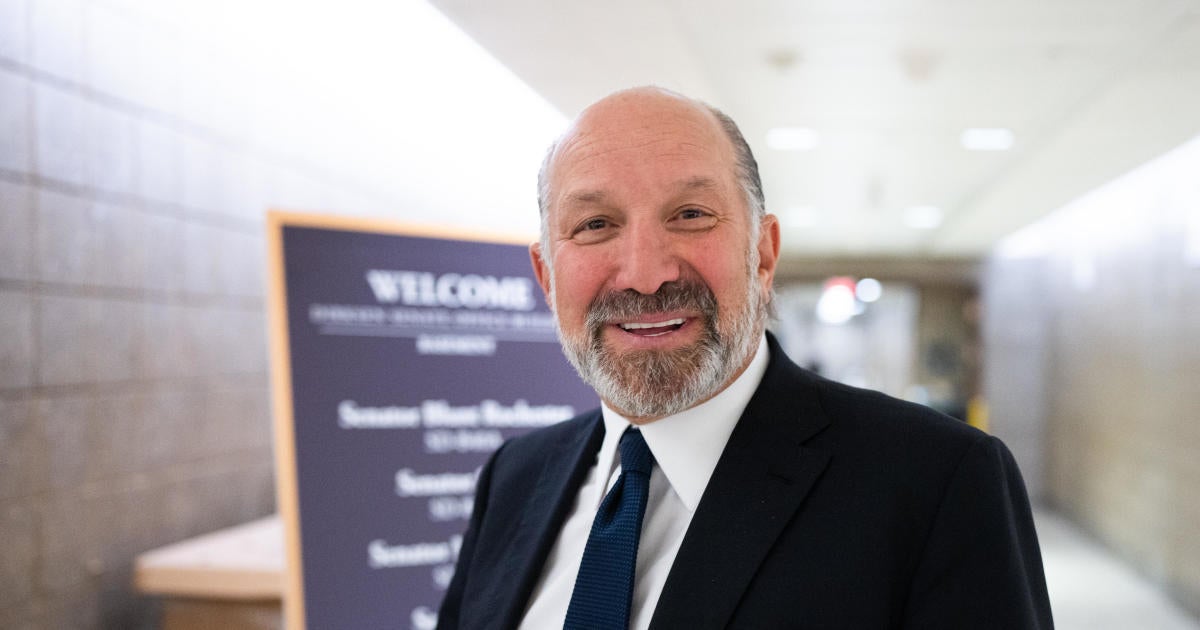Howard Lutnick’s Bold Move: Divesting Billions for a New Era as Commerce Secretary
In a surprising turn of events, billionaire and CEO Howard Lutnick has announced plans to divest his corporate holdings in a strategic move that positions him to take on the role of Commerce Secretary. This ambitious decision marks a significant shift not only for Lutnick himself but also for the broader business landscape. With his history of navigating complex financial terrains, Lutnick’s vision for commerce can potentially reshape policies that affect millions of Americans and the global economy.
The Rationale Behind Lutnick’s Decision
Howard Lutnick, known for his tenure as the CEO of Cantor Fitzgerald, a global financial services firm, has built his fortune through strategic investments and a deep understanding of market dynamics. His decision to divest billions of dollars in corporate holdings stems from a desire to eliminate any conflicts of interest that may arise in a government role.
This move is particularly noteworthy given the scrutiny that public officials face regarding their financial interests. Lutnick has stated that he believes in transparency and accountability, especially in a position that influences commerce and trade policies. By divesting, he aims to establish trust with the public and ensure that his decisions are guided solely by the interests of the American people.
Implications for the Business World
Lutnick’s divestment raises several questions about the implications for the business world:
- Impact on Cantor Fitzgerald: Lutnick’s departure from the business sphere could lead to changes in how Cantor Fitzgerald operates. Will the firm continue to thrive without its charismatic leader?
- Investor Reactions: Investors often react strongly to leadership changes. Lutnick’s decision may create uncertainty among investors, prompting them to reassess their positions.
- Policy Influence: As Commerce Secretary, Lutnick will have a direct hand in shaping policies that affect trade, regulation, and economic growth. His corporate background could lead to a more business-friendly environment.
Lutnick’s Vision for Commerce
Having spent years in the finance sector, Lutnick has a unique perspective on the challenges facing businesses today. His vision for the Commerce Department includes:
- Fostering Innovation: Lutnick believes in the importance of innovation as a driver of economic growth. He aims to support startups and emerging technologies through government initiatives.
- Streamlining Regulations: By reducing bureaucratic red tape, Lutnick hopes to create a more conducive environment for businesses, allowing them to operate efficiently and effectively.
- Strengthening Trade Relationships: Recognizing the global nature of today’s economy, Lutnick plans to strengthen trade relationships, ensuring American businesses can compete on a global scale.
Challenges Ahead
While Lutnick’s ambitious plans are commendable, they are not without challenges. The political landscape in Washington is often fraught with division, and implementing significant changes can encounter resistance.
Furthermore, Lutnick’s background in finance may draw criticism from those who advocate for more stringent oversight of corporate interests. Balancing the needs of businesses with consumer protection and environmental sustainability will be crucial in his role.
Public Perception and Trust
Public trust in government officials has been waning in recent years, and Lutnick’s ability to foster a positive image will be vital. His decision to divest is a step towards building that trust, but he will need to continue demonstrating integrity and transparency in his actions as Commerce Secretary.
Engaging with various stakeholders—including small businesses, labor unions, and community organizations—will help Lutnick understand the diverse needs of the economy. By prioritizing open dialogue, he can craft policies that reflect the interests of all Americans.
Conclusion: A New Era in Commerce
Howard Lutnick’s bold move to divest billions for his new role as Commerce Secretary signals a transformative moment in American commerce. His extensive experience in the financial sector, combined with a commitment to transparency and innovation, positions him as a potentially influential figure in shaping the future of trade and economic policy.
While challenges lie ahead, Lutnick’s proactive approach and willingness to engage with various stakeholders may pave the way for a new era in commerce. The business world is watching closely as he embarks on this journey, and the outcomes of his tenure could redefine the landscape for businesses and consumers alike.
In summary, Howard Lutnick’s divestment and subsequent acceptance of the Commerce Secretary role is a strategic decision that not only reflects his commitment to public service but also raises exciting possibilities for the future of commerce in the United States. As he steps into this pivotal position, the implications of his leadership will undoubtedly resonate throughout the economy and beyond.
See more Business Focus Insider Team

